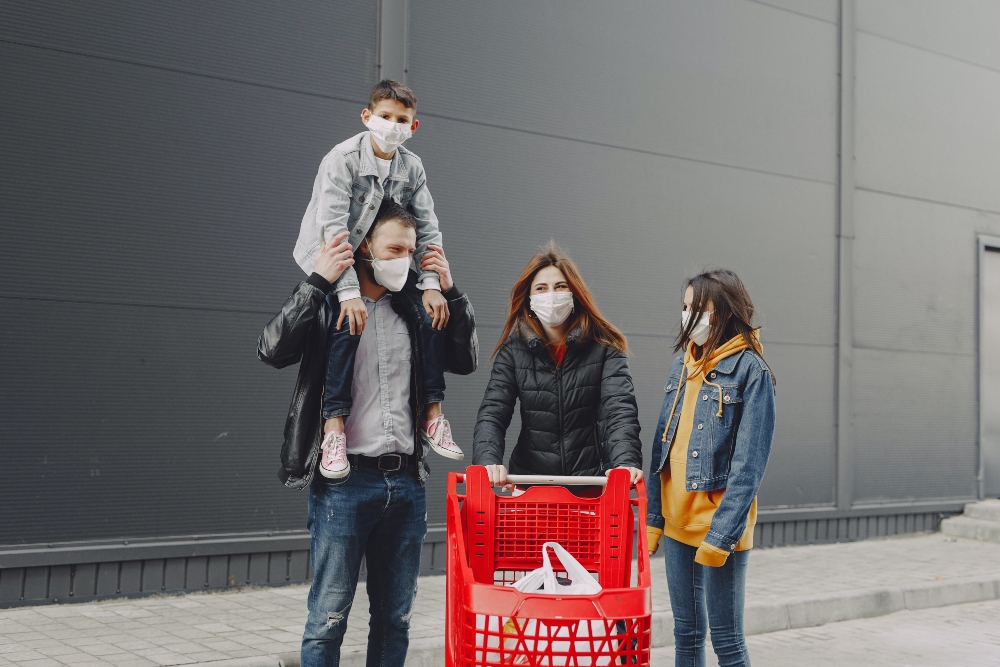
The image source is Pexels.
The best way to handle home emergencies is to try your hardest to prevent them. While this isn’t always possible, knowing what to do before any emergency strikes will prepare you for a worst-case scenario. Whether it’s an unexpected medical problem or an accident at home, understanding best practices for these situations will help minimize the dangers involved. Make sure your family knows what to do if and when something goes wrong to make sure everyone in your household is prepared.
Preparing for the Worst
While home emergencies are often few and far between, it’s best to be prepared in case they do happen. Knowing what to do in an emergency situation can be the difference between barely getting through the situation and protecting your loved ones. Here are five things your family should keep in mind to protect themselves in the event of an emergency:
1. A Fire Plan
If you’re trapped inside a burning building, knowing the proper paths to take ahead of time is crucial. While most people imagine they’ll have time to think about escape routes during a fire, they often forget that fires can burn exit paths and make them dangerous and unusable. With the help of a fire plan, you’ll be able to get out safely using the most appropriate tools and paths.
Make sure all members of your family know the details of your fire plan. Your plan should include information on which way to go based on which side of their bedrooms their windows are (and if there are no windows, how to get out using interior doors). For example, if a room is facing north and the fire is coming from the south, the north-facing windows should be used as an exit. Post signs inside each bedroom and outside each window showing which way people should evacuate from there.
2. Hurricane or Tornado Preparation
Hurricanes or tornadoes may be rare but they do happen unexpectedly and with little warning. Be sure you have an evacuation plan in place and decide whether your family will shelter or evacuate should a tornado or hurricane strike. If you are planning on leaving with your family ahead of a natural disaster, ensure that everyone knows where they’re going and how they’ll get there. In case of a tornado or hurricane, it may also be helpful to have a list of hotels or motels should you need to evacuate quickly with your family. Likewise, saving contact information for an emergency cleaning service will help you get your house in order once the storm passes.
3. Fire Extinguisher Use
It’s easy to think that having a fire extinguisher is unnecessary, or even dangerous—but they’re incredibly important in the event of a fire. No matter where you live, it’s important that you and your family know how to use a fire extinguisher if there is an emergency. This way, if your house catches fire, every member of the family will know how to use an extinguisher to put out the flames. Use an extinguisher by directing the nozzle at the flame, not the smoke. Keep in mind that fire is identified by its orange color, not the black smoke. Additionally, make sure everyone knows what type of extinguisher they are using and where it’s located in case of an emergency.
4. CPR Techniques
CPR is an essential life-saving technique that families can use in an emergency situation in which someone’s breathing or heartbeat has stopped. It involves performing chest compressions on an individual whose heart has temporarily stopped beating. Emergencies like heart attacks, near-drownings, drug overdoses, and other serious medical conditions are all situations in which CPR can save a life. Consider signing your family up for CPR classes to keep yourselves prepared for the worst.
5. Disaster Kit Essentials
A disaster kit is another must-have for home emergencies. It’s always better to be safe than sorry, so take a few minutes and put together a simple kit so your family knows exactly what to take with them in case of a disaster. The most effective disaster kits are stocked with essentials that will help sustain your family following an emergency. Keep these items handy when putting your disaster kit together: a battery-powered radio or flashlight, a first aid kit, nonperishable food, medicine, important phone numbers, and water.
Conclusion
Home emergencies can happen at any time. Keep these five things in mind in case of an emergency to make sure you and your loved ones know exactly what to do.


